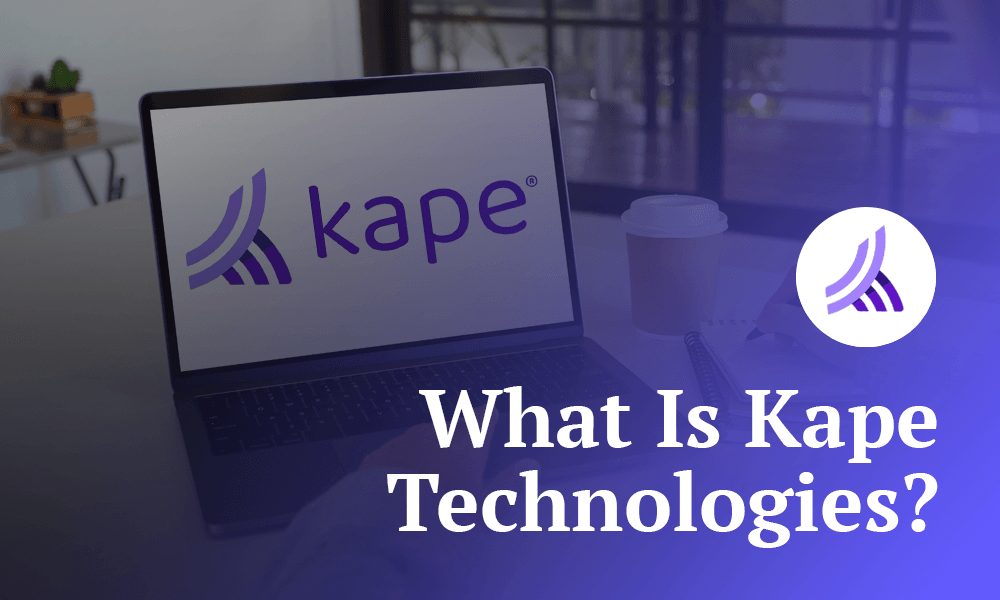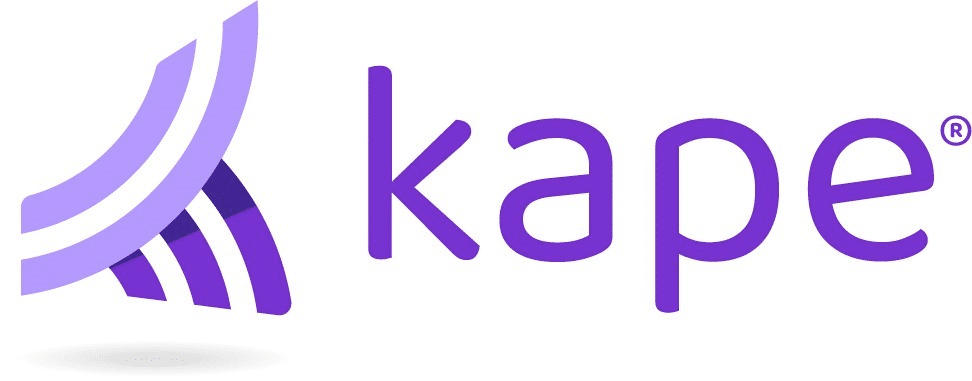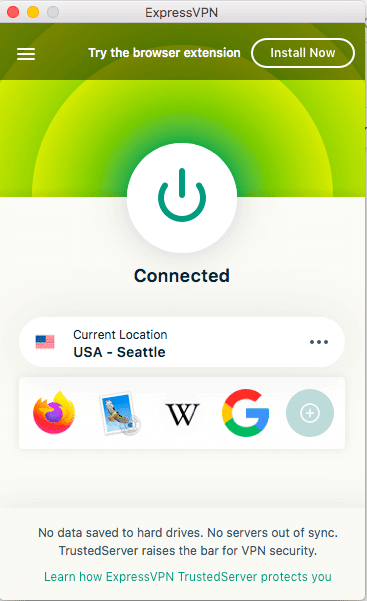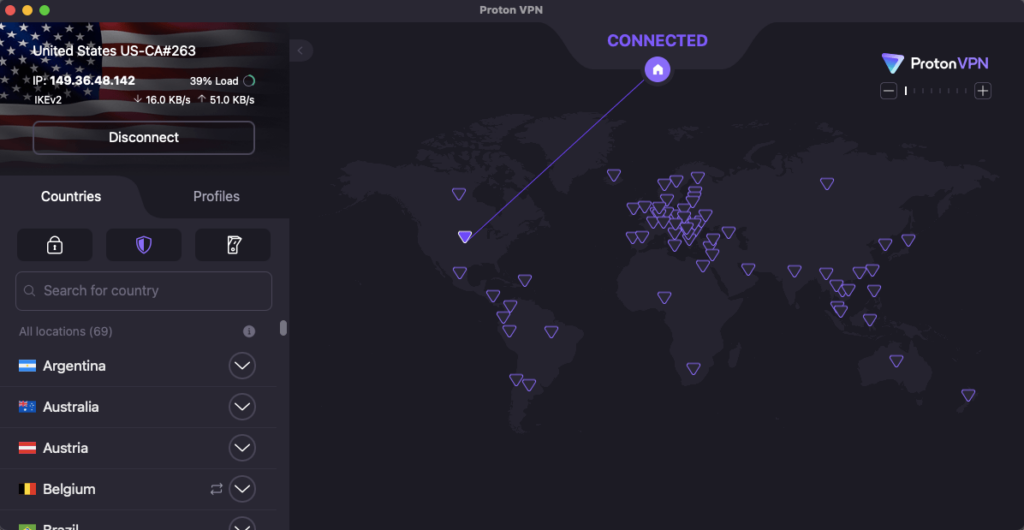
Kape Technologies: 2025 Guide to Who Owns ExpressVPN
Quick Summary: What Is Kape Technologies?
Kape Technologies is a digital security technologies company that owns VPNs ExpressVPN, CyberGhost or Private Internet Access. The history and business practices of Kape Technologies are concerning, but there’s no evidence of a threat to any users of its VPNs.
I recently wrote an investigation of who owns your VPN, shedding light on the troubling trend of VPN consolidation. In that inquiry, one name rose above all the others: Kape Technologies. But what is Kape Technologies, and how worried should you be if it owns your favorite virtual private network (VPN) service?
Kape Technologies is a company whose purpose is to own other companies, and it is in turn owned by Unikmind, whose sole owner is Israeli businessman Teddy Sagi. Kape Technologies is a distributor of digital security technologies, including VPNs, antivirus software and online publishers of privacy information. Its current portfolio includes ExpressVPN, CyberGhost, Private Internet Access and Zenmate.
There are two separate reasons to be concerned about how Kape has come to dominate the VPN field. The first is basic economics. Consolidation reduces competition, which in turn reduces the business’s incentive to serve up a good product. The second reason ties into Kape’s checkered history, which I’ll explain in more detail later in this article.
With all that said, I’m not recommending you ditch ExpressVPN because of its parent company — far from it, as it still tops my best VPN list. Kape Technologies has not been accused of any malfeasance. In this article, I’ll set the record straight on whether Kape matters for your everyday anonymity and what you can do if you’re concerned about VPN consolidation.
What Is Kape Technologies?
Kape Technologies is a U.K.-based holding organization. In its own words, it “develops, acquires, and distributes a variety of leading digital security software.” This is a roundabout admission that Kape isn’t a typical software development organization. Though it may develop some of the products it buys, it’s hard to tell how ExpressVPN would be different if Kape didn’t own it.

Instead, it’s more interested in owning brands. Kape’s business model is to acquire well-known software in the digital security space and take charge of distributing it. According to its website, Kape owns four VPNs, one antivirus software and one digital content publisher, Webselenese (which in turn owns vpnMentor and Wizcase).
Though best known as a parent company, Kape itself is a wholly owned private subsidiary of another holding firm, Unikmind, an investment firm whose sole owner is the Israeli-Cypriot magnate Teddy Sagi. Kape was traded publicly on the London AIM exchange from 2014 until June 2023, when Unikmind — which already owned over 50% of Kape’s shares — acquired enough stock to delist Kape altogether.
Some investors believe Kape was significantly undervalued in the acquisition. Problems continued afterwards, as Kape laid off 180 employees (ExpressVPN co-founder Peter Burchhardt also left, though it appears to have been his own decision). There’s no evidence connecting the Unikmind takeover and the firing, especially with layoffs across the tech sector, but the timing raises questions.
Why Collect VPNs?
Businesses buy VPNs because they’re profitable. The market for VPNs is expected to surpass $90 billion this decade as more users than ever sign up for the protection and international streaming access these services provide. For the moment, VPNs — especially well-regarded brands like ExpressVPN, CyberGhost and PIA — are a growth industry.

The longer answer to why businesses might buy VPNs is also profit, but in a shadier way. Imagine two independent VPNs; most subscribers pay for only one of them. To attract business, the two providers must offer better prices, build better infrastructure and outdo one another with innovative features. It’s how a healthy capitalist economy is supposed to work.
Now imagine one parent company buys both of those VPNs. The incentive to compete is gone — a customer of one is now a customer of both, since all the profits go to the same place. Both VPNs can also inflate their portfolios by sharing resources, placing more stress on their servers and leading to a worse experience for every user.
This is all abstract, and none of it is inevitable. Our tests haven’t shown ExpressVPN, NordVPN or any other good VPN service getting markedly worse after being acquired. On paper, though, it’s bad for consumers and great for big business, so you can expect it to continue without government intervention.
Kape Technologies VPN List
VPNs Owned by Kape Technologies:
- ExpressVPN
- CyberGhost
- Private Internet Access
- ZenMate
Kape Technologies owns four VPN providers: ExpressVPN (see my ExpressVPN review), CyberGhost (see my CyberGhost review), Private Internet Access (see my Private Internet Access review) and Zenmate. It owns each service openly, not making any attempt to hide its involvement.
In what may be its most anticompetitive behavior, Kape also owns Webselenese, which publishes WizCase.com and vpnMentor.com. (Note that this isn’t the same as an affiliate partnership; see how we work for details.) Both of these sites review VPNs, including those owned by Kape. Both disclose this on their home pages, but not on the reviews themselves.
Kape’s final brand is Intego Antivirus, an anti-malware program designed for Macs. Founded in 1997, Intego was acquired by Kape in 2018, around the same time as CyberGhost. There’s a reason for the timing: 2018 was a banner year for Kape, as you’ll learn in the next section.
Kape Technologies: History & Background
Kape began in 2011 under the name Crossrider. At the start, it was the exact opposite of a security company. Its first product was a platform for apps and extensions that made money by pushing ads onto the user’s web browser. Crossrider extensions weren’t required to inject ads, but with over 300 million users by 2013, it’s impossible that nobody was using the main monetization feature.
In 2015, Google worked with a University of California research team to find out why Chrome users were complaining so much about unwanted ads. The resulting study of the ad-injection economy calls out Crossrider by name, listing it among “about 1,000” businesses that made money by forcing unwanted ads onto Chrome and other browsers.

Widespread loathing of its tactics caused Crossrider’s stock price to plummet. It replaced its CEO in 2016. By 2018, the new CEO had led the company through an apparent heel-face turn and changed its name to Kape, reflecting its new interest in protecting people from the invasive ads it once served up to users.
The 2017 acquisition of CyberGhost was the first plank of Crossrider’s new image as Kape. However, its consolidation of the VPN industry and ownership of two review sites mean average users should still watch its behavior closely.
Crossrider Malware Controversy
Some of Crossrider’s critics went farther than criticizing its ad-injection strategy, outright labeling the company’s platform as malware (see my protect yourself from hackers article for a working definition). MalwareBytes took that position, arguing that Crossrider’s browser hijacking is indistinguishable from a virus.
The creators of malware certainly thought so. As early as 2012, cybersecurity experts warned that Crossrider made an incredible attack vector for wholly malicious programs. Although not every app built on Crossrider is evil (this FC Barcelona fan app is harmless, unless of course you support Real Madrid), the technology was regularly abused by bad actors.
Instead of taking responsibility, Crossrider changed its name to Kape and washed its hands of the whole thing, leaving the malware vector lying around for anyone who wanted it. And people did. New Crossrider-based attacks kept turning up as late as 2019.
To be clear, there is no indication that Crossrider actively participated in distributing malware, outside of ads (obnoxious, but technically legitimate). However, in my opinion, it’s at least guilty of severe negligence in letting all this happen. Its pivot to cybersecurity may be an attempt to atone for its past mistakes.
Who Owns Kape Technologies Now?
Kape is currently owned by Unikmind, the investment company that bought a 75% supermajority of its shares in 2023 and pulled it off the public stock exchange. A look at Unikmind’s homepage shows that owning Kape is its reason for existence. The very first paragraph states: “the principal activity of Unikmind Holdings Limited is the holding of an investment in KAPE Technologies Plc.”
Unikmind’s sole owner, Teddy Sagi, bought Crossrider when it was a small startup in 2012. Even when Kape’s stock was publicly traded, Unikmind never owned less than 50%.

Unikmind is so limited in focus that it’s hard to say much about its ideology. However, there are reasons to be hesitant of Sagi himself. He’s heavily invested in ad tech in the past and served nine months in jail in the ’90s for market manipulation. Since Sagi is Unikmind’s sole owner, the two can be considered synonymous for all intents and purposes.
Sagi’s motivation for buying Kape and taking it private is likely related to Kape’s strong growth prospects — the more shares Sagi owns, the more of that future revenue he controls. Before the acquisition, experts advised shareholders not to take the deal, arguing that Sagi had undervalued Kape based on its future growth potential.
As for what will change now that Kape is essentially controlled by Sagi, it’s still unclear. Matters between a parent company and its holdings are internal, so decisions like the layoffs at Kape or the Crossrider ad-injections can’t be definitively pinned on the owners.
In the end, the best indicator of the buyout’s impact may be the performance of Kape’s VPNs over the next two years — and none of them have shown any declines so far.
Should You Trust Kape Technologies?
The simple answer is that you should never trust a corporation, even one with a product designed to keep you anonymous and private. A company’s first obligation is to make money — if working against you will accumulate wealth, then you’re the cost of doing business. Trust issues are a good policy in this economy.
That said, there are ways to verify corporations enough that you can work with them. That’s why I’m always insisting on VPNs getting independent audits from reputable firms that publish their findings independently. By looking at how a provider responds to flaws unearthed by a third-party audit, you can see how much it actually cares.
Audits can also prove that it would be impossible for a VPN service or its owner to misuse your personal information. For instance, ExpressVPN anonymizes all user activity and saves it all on server RAM, which wipes itself with every hourly reset. There’s nothing left to use for ISP tracking. Third-party reports back up those claims. That’s why I still use ExpressVPN myself.
One final point: depending on your priorities, you don’t have to trust Kape Technologies to use its products. Many people just want a VPN to unblock Netflix while they travel, or shop for online bargains in other countries. All these things are legal, so it doesn’t matter if your VPN shares information about them with its parent company.
If you decide you can’t trust any Kape-owned VPN, or if you need a VPN for highly sensitive activities such as torrenting or protecting your journalistic sources, there are plenty of independent services you can use instead. Take a look at my Proton VPN review or Mullvad review for two of the most private.

Conclusion
I want to emphasize that Kape Technologies hasn’t done anything heinous yet. It hasn’t been caught selling data on ExpressVPN users or turning CyberGhost users over to authoritarian regimes. I can’t directly correlate a drop in any VPN’s quality with its acquisition by Kape, nor can I prove it actively encouraged bad actors to send malware in the Crossrider days.
To use the language of my generation, Kape isn’t toxic, but it is problematic. Owning vpnMentor and Wizcase is the most obvious example, but it’s also refused to take responsibility for the malware attacks enabled by Crossrider. Beyond that, industrial consolidation is never good for the public, no matter how much companies call it “joining forces” like they’re the Avengers or something.
Here’s my ultimate advice: keep using ExpressVPN, CyberGhost, PIA and Zenmate if they work for you (they do for me). But if the quality declines, the price sharply rises or the providers are caught breaking their promises, hold them accountable and switch to an independent VPN.
Thanks for reading, and I’ll see you soon for another privacy investigation! In the meantime, I’d love to get your opinions on Kape Technologies in the comments.
FAQ: Kape Technologies
What Happened to Kape Technologies?
In June 2023, Kape’s majority shareholder — Teddy Sagi of Unikmind — purchased a 75% interest, allowing him to delist Kape from the London stock exchange. The next month, Kape laid off about 12% of its employees, though it’s not clear if these events are connected.Is Kape Technologies a Chinese Company?
No, Kape Technologies is not meaningfully connected to China. It’s based in the U.K. (specifically on the Isle of Man) and owned by an Israel-born Cypriot investor.What Does Kape Technologies Do?
Kape Technologies owns and distributes online security products, including VPNs, an antivirus program and two review sites. These products are mostly autonomous, with Kape’s influence over their work hard to prove.Who Owns ExpressVPN?
Kape Technologies owns ExpressVPN after purchasing it in September 2021.Who Owns PIA VPN?
Like ExpressVPN, PIA VPN is owned by Kape Technologies, following an acquisition in 2018.Who Owns NordVPN?
NordVPN is currently owned by Nord Security, which also owns the VPN Surfshark. It is unrelated to Kape Technologies or its VPN products.

Leave a Reply